The Silenced Tale (J.M. Frey)
$5.99
The Accidental Turn Book III
Forsyth Turn never wanted to be a hero. And yet, even in the Overrealm, a hero is what he’ll be.
After their last adventure in Hain, Forsyth expected to return to the life he’d built with Pip and Alis, his days of magic and heroics behind him. But then Pip starts suffering night terrors laced with images of glowing ivy and Elgar Reed calls with fears of bizarre threats and a man garbed all in black.
But there is no magic in the Overrealm. Forsyth refuses to believe that anything other than mundane coincidence is at work—until Elgar’s stalker leaves him a message too eerie and specific to ignore. Now, he has to face the possibility that Pip’s dreams and Elgar’s fears are connected . . . and that maybe they weren’t the only ones to escape the pages of The Tales of Kintyre Turn.
And if that’s the case, it’s going to take more than a handful of heroes to save the day this time. It’s going to take an army. Luckily, Reed fans are legion.
A stunning conclusion to the series, The Silenced Tale is a genre-bending whirlwind that breathes life into the idea that the power of story lies not just with the creator, but with the fans who love it.
Pre-order for $0.99, and receive your copy a weekend before everyone else! Get it Friday, December 8, 2017!
Additional information
| Format | ePub (Nook), Mobi (Kindle), Paperback, PDF (Other) |
|---|
Read The First Chapter
One
Elgar
The phone call from the Smithsonian Museum is the first indication that something’s off. There’s a little dancing red star beside his calls icon, indicating a voice mail waits for him, when he gets off the plane from Victoria. He listens to it in the cab ride home, frowns, blinks a little, then listens to it three more times. The content doesn’t change, though he imagines the curator’s voice gets more and more hysterical with each replay. The upshot is this: his typewriter, the old race-car red Olympia De Luxe his aunty gave him, has been stolen.
It’s a bummer, but he’d donated the typewriter because he didn’t need it anymore. And frankly, as far as he’s concerned, they can make up a fake to put on display. Nobody will ever know the difference if they don’t publicize it. Why they told him it had been stolen at all is the bigger mystery. It’s not like he has a spare for them to borrow, or any leads on where the lost one is. No one’s tried to ransom it back to him.
“We’re very sorry,” the curator says again when he calls her back, juggling his carry-on, his house keys as he unlocks his front door, and his wheelie suitcase. “We just have no idea what happened.”
Elgar jams his cell phone between his ear and shoulder as he sheds his dripping coat and muddy boots. He leaves his suitcase and carry-on by the front door, only half-listening to the curator bumble her way through more apologies as he sifts through the mail that’s waiting on the table in his front hall. His assistant, Juan, has been in to feed Linux and drop off the correspondence needing his attention. In pride of place on the top of the pile is the latest in what feels like an unending, torturous series of contracts to read and sign back to Flageolet Entertainment. Elgar sets it back down in disgust.
Outside, the mushy gray of a late Seattle winter drizzles on. Elgar paces over to the window as the curator works her way up, verbally, to whatever it is she wants to add to “your typewriter’s been stolen.” That information should have been the climax of the scene, and he can’t think of what might be more important than theft. Poor narrative structure. If the curator was one of his MFA students, he would dock marks for rambling. Being circuitous. Wordy. Loquacious. Palaverous.
He stares out the window at the slush-flakes falling onto the quiet muddy mess of his backyard as he muses on synonyms. The curator keeps talking. Elgar blinks and frowns. “Wait, back up. What did you just say?” he asks, checking back in to the conversation.
“It disappeared,” the curator mutters, clearly ashamed to have to say it out loud a second time.
Weird things are just a part of Elgar’s life now. And while a theft like this might be par for the course for an internationally best-selling author, what she’d said is . . . well, new. No, not new. It’s . . . neoteric.
Any other time, Elgar might have assumed it was just an overzealous fan. That happened sometimes. Quite a lot, actually. Elgar’s old apartment in the co-op housing complex he’d been living in with his aunty when he began writing The Tales of Kintyre Turn in the late seventies had been broken into enough that the landlord of the unit had put bars across the windows and doors. He uses the place as storage now, instead of renting it out.
But this is really neoteric.
“It just disappeared,” the curator repeats a third time, distraught and desperate to fill the empty air when Elgar remains silent.
Right. There are crazy fans, and then there’s . . . this.
This right here is a completely different brand of crazy. The new kind of crazy he’s still trying to get his head around, a year after he’d been introduced to it in a hotel bar in Toronto. This is the kind of crazy he thought he’d just left behind in Victoria after a week-long visit with the Piper family—his family, in a way that goes much deeper than blood.
“We reviewed the security camera logs,” the curator promises. “But there was no indication of who committed the crime. Or . . . or how, actually. It just sort of . . . vanished?” she finishes. “Kinda just blinked out of existence on the footage, really.”
“Poof kind of vanished?”
“No, no poof. No explosion. Just . . . blink. In one frame of the footage, not in the next. The police think it might have been a fancy digital splice-job.”
“Huh,” Elgar says, a strange sort of displacing numbness settling in his fingers and toes, crawling up his limbs. “And, uh, when did this happen?”
The curator makes a distressed sound. “December twenty-ninth,” she admits, and it sounds like she’s saying it through her teeth. “We only waited so long to tell you because we thought . . . well, we thought we would have figured it out by now. I mean, about how it happened.”
“No, no, it’s okay,” Elgar says, trying to sound warm and soothing when every short hair he possesses is standing upright with a frightful chill. “I understand. Is there, uh, is there anything you need from me?”
“Not at this time, Mr. Reed. I just, ah, I just felt that it was about time you knew.” She sounds shamed and small. “And I apologize, again.”
“Okay. Thanks for calling,” Elgar says, and then stares in blank horror at his smartphone as she disconnects. He sets it down on the windowsill and rubs his arms through his thick sweater. A brush against his leg, sudden and unexpected, makes him yelp and step back. An indignant feline howl replies. Elgar catches sight of an angry marmalade blur as it streaks out of the living room and into the kitchen.
“Linux!” he calls after the cat, guilt instantly surging up to squeeze his still-frantic heart. “Aw, sorry, buddy! You scared the crap out of me.”
Linux meows angrily. Elgar finds him sitting primly on the counter, where he knows he isn’t allowed to be, licking his tail.
“Did I step on you, buddy? Sorry, I’m a dick.”
He reaches out, grabs Linux carefully by his scruff to keep the cat from bolting, and runs his fingers across the cat’s tail, checking for swelling or breaks. Linux protests with hisses, laid-back ears, and a harsh rake of claws against Elgar’s inner wrist.
“Right, I know, I deserved that,” Elgar says with a wince. “But I’m a big guy, Linux. There’s an awful lot of me to come down on you. Let me just check, okay—ow! Shit! Ungrateful little asshole!”
He lets Linux go, satisfied that the cat is whole, if supremely pissed off at him, and washes out his new battle wounds. Linux yowls at him again and speeds away toward Elgar’s office. Probably to sit on his laptop and glare.
Elgar had bought one of those kitty-friendly desks, where the underside is a wooden maze of tunnels for the cat to sit in, with a comfy, pillow-lined basket beside the keyboard. It was meant to keep kitty feeling entertained and comfortable while you were working, rather than neglected. Linux uses the tunnels and the basket sometimes, but whenever Elgar leaves the room for a cup of coffee or to answer the call of nature, he inevitably comes back to find the cat spread out over his laptop, eyes slits of contentment as he rubs his fur in between the keys and soaks in the machine’s heat.
Whether or not the laptop is on doesn’t matter. Linux is envious of how much time the machine gets and tries to get his body between the keys as often as possible.
A sudden thought grips Elgar’s lungs in terror. His chest freezes up, breath punched out of him. What if my laptop has vanished, too? He rushes to his office, clutching his sluggishly bleeding hand, and stops in the doorway. His lungs burn as he sucks in a breath to shout.
“Linux, move!”
The cat raises his head and grumbles unhappily. Elgar crosses his office and shoves his hand under the furry creature, who hisses and snarls, but refuses to be budged. Underneath him, Elgar’s fingers skim the cool metal casing of his computer. He sags, bending down to press his forehead against Linux’s fuzzy belly, overcome with relief.
Linux bats at his hair, but with claws sheathed this time. Elgar rubs his nose against the cat’s tum, and Linux gives up his anger, sprawls back, and enjoys the bizarre petting. After a moment, Elgar’s joints feel sturdy enough for him to straighten.
He keeps backups—both paper and digital—in a fireproof safe in the bottom drawer of his filing cabinet, and he checks this, too. Everything is where it should be. The correct number of CDs and memory keys still sit atop the early-draft manuscripts filed neatly under them. He locks the safe, and then the filing cabinet, and runs his hands through his puff of white hair, relieved and annoyed at himself in equal measure.
If it really was actual, real magic that stole his old typewriter, then it hadn’t reached here. And really, he chides himself, if there was some sort of magic intent on stealing his work, or his tools, then everything would have vanished months ago, the same time as the typewriter.
The same time that everyone else’s books were disappearing.
Still . . .
He doesn’t want to worry Forsyth unnecessarily; Forsyth would drop everything and come to Seattle for him. Maybe he’d even get on a plane, though he despises the things. No, better to go to the more prosaic of the pair first. He glances at the clock on the wall. Lucy will be at work by now, so he goes back out to the living room, grabs his phone, and calls her office.
“Professor Piper, UVic,” she answers on the second ring. “Hello?”
“Hey, Lucy, it’s me,” he says.
There’s a slight pause on the other end of the line, a hesitation that he wouldn’t have noticed if he hadn’t been listening for it. It’s taken Elgar a few visits to Victoria to work out why it is that Lucy always seems uncomfortable around him, why she never totally welcomes his presence in their lives. It’s not that Lucy Piper doesn’t like her husband’s creator. It’s the fact that Elgar Reed is the living reminder that, at some base level, the man she loves and the child they have created together are not real. They live, they breathe, they can touch and be touched, they have preferences, they laugh and cry and bleed. But they are not, at their most base, of her world.
And there is always the terrifying possibility that something might happen—in the world of the books, or to Forsyth and Alis, or to Elgar himself—that will make everyone she holds most dear blink out of existence. They’ve had more than one wine-fueled evening of sniffles and honesty since the Pipers returned from Hain. And Lucy’s chiefest fear is that, when Elgar dies, as he eventually must, her husband and daughter might go with him.
The truth of it is that, even though it’s through Elgar’s imagination and pen that the inhabitants of The Tales of Kintyre Turn have gained sentience and access to this realm—what Bevel Dom has dubbed the Overrealm—no one actually really knows how or why the Deal-Maker magic works here. Especially when no other magics do. Forsyth’s potions are just herb soups, his runes nothing more than lifeless scratches in the dirt, his Words of Power nothing but blurred mumbles.
Which means that, no matter how hard Elgar tries to work at their relationship—and he does try, despite any accusations anyone might level at him about his being narcissistic, self-important, and high-handed—there is always an unavoidable undercurrent of tense animosity on Lucy’s end. A fearful wariness.
And he can’t blame her. After all, what Elgar thought up had hurt her.
“How was your flight?” Lucy says after a quick breath. “You must have just got in.”
“I did. It was fine. Same as always. Listen, uh . . . I have a strange question for you.”
“Yeah?”
“When you were, um, there . . . Forsyth said that the Deal-Maker was destroying totems, right?”
“. . .yeah,” Lucy says, and Elgar can hear the worry creeping into her voice just as clearly as the squeak of her office chair as she sits up. “Why?”
“Was . . . was there ever any attempt on a totem from The Tales of Kintyre Turn?”
Lucy is silent for another moment, and it’s just long enough that the chills return.
“Lucy?”
“I didn’t really see it, myself,” she answers slowly, her voice low and scared. “I didn’t get much chance. I was, uh, unconscious for a lot of this bit, but . . . Forsyth said he saw your typewriter.”
“The red De Luxe?”
“Yeah. Blasted apart. Like, by lightning. The Deal-Maker was a weather witch.”
Elgar’s stomach drops out. He’d only ever written one weather witch into the books; he knew exactly who Pip was referring to. “Shit,” he says, and even to his own ears it sounds strangled. “Solinde?”
“I never learned her name.”
“It’s Solinde,” Elgar says firmly.
“Elgar, what’s happened?”
“I . . . the Smithsonian called. Apparently, my typewriter vanished. Back in December.”
Lucy goes silent again. “I see,” she says at length.
This is why Elgar likes his pseudo daughter-in-law so much. She’s clever. Cleverer than him, at any rate. She catches on to things faster, understands the depths of things more. She even found things in his own writing he hadn’t realized he’d put there in the first place. She’d written a whole PhD thesis about it. (It had been a bit horrifying to read, if he was honest—made him feel naked in ways he hadn’t experienced since his first weeks as an MFA student.) But she’s smart, and he doesn’t have to spell things out for her, which he likes.
“And it didn’t come back when the books returned?” she prompts.
“No.”
“And the rest of your . . . your stuff?”
“Right where it should be. Thank god.”
“Huh.”
“Yeah, huh.”
There’s a shuffle and a thump from the other end of the line, and the sound of papers being moved around. “Okay, well, I guess there’s nothing else to really worry about. Nothing else is missing, nothing’s happened. It’s been quiet.”
Another silence, telling and tense, echoes down the figurative line from Canada.
“Do you ever worry it won’t be?” Elgar asks, the confession blurting out.
“Do you?”
Another telling pause. It sounds like she’s waiting for him to confess more. And, to be honest, there is more to confess. For all that Lucy is cleverer than him, Elgar is also not stupid. He knows that she doesn’t have a very high opinion of his social graces. And for all that he likes her, Lucy Piper, quite frankly, intimidates him.
She’s exactly the kind of woman that had made him a sweaty, nervous mess when he was a young geek. She’s self-assured, intelligent, speaks two languages, and sometimes seems to be sneering down her pert nose at him. He’d been frustrated and angry when women like Lucy overlooked him in favor of asshole jocks who treated them like garbage. He told himself that “nice guys finish last,” that women only wanted jerks, and then wrote a world where people like him, people who didn’t fit in, people like Kintyre Turn—who didn’t want to conform to what other people told him he should want—won the day. Where people like that got to be the hero, were free to behave however they liked, and got whatever they were entitled to have, because they strove for it. A world where women threw themselves at the Good Guys, and rewarded them with the sex, the servitude, the wifely submission that they deserved, simply by virtue of being Good Guys.
A world, Lucy had told him in the strongest language, and more than once, where being a woman completely sucked.
In the end, it turned out that Elgar had written the perfect romantic lead . . . he just hadn’t made him the main character. Women like Lucy Piper were looking for men like Lucy Piper: confident, generous, thoughtful, self-assured, compassionate. People who treated women like people instead of rewards for leveling up. People like Forsyth Turn.
Elgar knew this. Well, he knew it now. But it was sometimes difficult to relinquish old habits and prejudices. And if he was honest with himself, he’d admit that Forsyth Turn, his own creation, intimidated him, too.
Sometimes, it was hard not to feel like a slow child while trying to follow their rapid-fire, jargon-filled conversations. Sometimes, it even made him feel resentful. They did their best to explain when they caught him staring down into his cup—tea, wine, beer, or the strange liquors Forsyth kept bringing home, trying to find replacements for the nonsense ones Elgar had made up, which Forsyth missed terribly. But even that made Elgar feel stupid. No, not just stupid . . . puerile.
He was glad he’d already written all three books of the Shuttleborn trilogy, because there were days when just thinking about Lucy’s pursed frown of distaste made him snap his laptop closed and waste his work-time watching junk TV.
It makes it hard to write when you know that there are people in another world who literally suffered because of what you did, that there are people in this world who are disappointed with your every attempt. And as excited as Elgar is that Flageolet Entertainment has picked up the Kintyre Turn series and is in the midst of pre-production for the big television adaptation, he also secretly fears that if he has any hand at all in writing the scripts, those changes will affect Hain, Kintyre and Bevel, Wyndam and Pointe, Forsyth and Alis.
Initially, he’d asked to be present in the Writers’ Room, to work as the story consultant and maybe write an episode or two. Now, the most his agent has managed to get him to consent to is an agreement that he’ll read the scripts from home. He’ll send in notes and suggestions to keep the characters recognizable and the setting accurate, and otherwise remain hands-off.
He doesn’t dare do anything more.
And Lucy’s question—a simple, loaded “do you?”—makes all of this old self-loathing, resentment, and worry swirl into a hard ball behind his larynx. He swallows, trying to banish it back.
“Maybe I worry a little,” he says. “But I . . . I don’t want to waste every minute worrying, you know?”
Lucy sighs. “Yeah, yeah, I know. I get it. Look, I . . . I don’t think there’s anything more to this. I hope there isn’t, anyway. And you’re right. There’s no point in getting worked up if it’s nothing. It happened months ago. I mean, years might have passed over in Hain by now.”
“Is that how it works?”
“Honestly?”
“Yeah?”
Lucy snorts. “I have no fucking clue.”
Elgar catches himself chortling, and presses his palm against the rain-cooled windowpane in front of him. The laughter feels good. Feels like it’s pummeling the fear, cracking it apart piece by piece, pounding it into silky ash.
“The first time I went, I was there for nearly a year, but only a few weeks had passed here. The second time, we were there for well over a month, and it was only eight hours. And yet, time had passed in Hain at the same rate it had here—it had been about two years for them since Forsyth and I left, too. It’s a weird sort of slipstream thing, I think. Time passes at the same rate, unless a Reader is present? I don’t know.”
“It’s something to think about.”
“To be fair, I try not to,” Lucy admits.
“Sure,” Elgar allows. “Okay.”
“Listen, I’ll bring it up with Forsyth, and if he thinks it’s something to be concerned with, he’ll call, okay? Otherwise, I think you’re travel-tired, and worn out, and this hit you harder than you thought it would. I think you’re good.”
“I’m going to back up everything I’ve ever written by emailing it to myself, anyway,” Elgar says.
“If that makes you feel better, then do it.”
“Okay.”
“But I think you’re fine. I think this was a one-off.”
“But . . .” Elgar says, and then hesitates. There’s a corner of clear tape on the window, from when he and Juan had plastered his living room with the concept sketches Flageolet sent over, and he picks at it now with his fingernail. “What if . . . what if it actually isn’t nothing?” Elgar asks again, voice small and doltish in that way that Lucy’s confidence and insight always makes him feel.
“Then something else will happen. And then it will be a pattern. We can decipher a pattern.”
The tiny triangle of tape comes away from the glass, sticking to the pad of his finger. “That’s true. Though, I thought two was ‘a coincidence’ and three was ‘a pattern.’”
Lucy chuckles. “You have the best spymaster in the known world on your side here, Reed. Two’s enough for him to find the pattern. If there is one. There might not be. But if there is, we’ll figure it out. Trust us.”
“I do.”
“Okay, then.”
“Okay.”
They both linger on the phone, listening to each other breathe. It’s cowardly. Elgar’s too afraid of his own fear, of being alone with his admittedly vast imagination, to want to sever the call and, with it, his only connection to someone who understands.
“Elgar. You’re fine,” Lucy says eventually, and her voice is warm, comforting. She’s lost the haughty distance she sometimes has when he’s surprised her. “I promise.”
“Okay.”
“Okay. Go get some sleep, all right?”
“All right. Bye.”
“Bye,” she says, and ends the call. Outside, the perpetually gray clouds open up again, and the world is pummeled in earnest by the rain.
#
Forsyth
Pip comes home smelling of her time after school at the gym. The look on her face and the fact that she did not shower before she came home says clearly that she is bursting to inform me of something. She crooks her finger at me, bidding me follow even as she entreats me verbally to go in the opposite direction.
“Hey, Freckles,” she says as she drops her satchel and coat on the bottom stair in a heap, a practice she knows I find frustratingly slobby. “Pour me a glass? Then come up?”
Both confused and intrigued, I rise from where I was reading the newspaper on the sofa and head into the kitchen to provide Pip with her requested libation. While I’m there, I pour a second glass for myself.
“Bao bei,” I call through the door of our en suite when I have the requested after-work wine in hand. “Why did you not shower at the school?”
“Come in,” Pip says. “I want to have this conversation face-to-face.”
I oblige, and my wife sticks her hand out around our shower curtain for her glass. Amused, I pass it to her and sit on the closed lid of the toilet. The shower wall has a small window in it that looks out over our backyard, and the light of the sunset behind Pip throws an extremely enticing silhouette against the curtain.
“Mmm, shower-wine,” she says. “Way better than shower-coffee.”
“I know it is ‘date night,’ but surely you can’t be this eager, can you?” I chide.
Pip pokes her head around the curtain, her hair a froth of suds, and waggles her eyebrows at me. “I wasn’t before, but you did bring me shower-wine. Wanna climb in?”
“Absolutely.”
Pip quaffs her wine and hands her empty glass to me, a Malbec mustache painting her upper lip. I lean forward to kiss it away, then quaff my own wine. Pip leers at me as I strip off my day-wear—a pair of warm, stretchy yoga pants and a freshly cleaned hoodie.
“Oh, you spent the day commando. Such thoughtful foresight,” Pip comments as I step into the spray. She slides her soapy hands over my shoulders and down my back to grab a double handful of her most favorite part of my physical assets.
“Alis was with her grandparents all day,” I say, grinning at her eagerness. “And I didn’t have to step out to the store, so I thought there was no point in making extra laundry for myself.”
Pip gives my backside a firm squeeze to show me just how much she appreciates my thoughtfulness. I return the favor, and soon things are slippery, and soapy, and lovely.
“What conversation did you want to have face-to-face?” I ask between kisses, and Pip makes a face.
“No, no, I’ll tell you after. Not while we’re naked.”
“Pip,” I say, backing off a little. “Whatever it was, you thought it urgent enough that you chose to come straight home instead of showering at the university.”
“It’ll keep,” Pip promises, pursuing my lips again.
But now I am curious, and curiosity has always been a more potent addiction than desire. “Then why the initial rush?”
“I didn’t want it going around and around in my brain while I was showering there.” Pip steps into me.
I step back again. Pip pouts. “What is it?”
“It will keep,” she insists, and makes up the lost space between us. This time, I do not back up. Instead, I let her have her way. Her delightful, delightful way.
Soon we are dressed in naught but our bathrobes and cuddled into one another on the sofa before the electric fireplace, our wine glasses and the bottle both waiting on the coffee table. We doze until Pip jerks in my arms and nuzzles her nose deeper into my naked chest.
“Umf?” I ask softly, running my palms down the texture of her back. Pip says nothing, but cringes and wriggles again. I’ve never known her to be jittery in bed—normally, she flops into her preferred position, on her back with one hand over her head, and stays there until morning.
My wife is a deep sleeper. If Alis cries, it’s generally I who hears the crackle from the baby monitor first. I wouldn’t say I’m an especially light sleeper myself, but the noise of an Overrealm city at night is more than I’m used to. I’m not entirely comfortable with trying to sleep in a soundscape that doesn’t resemble a wide, dark countryside dotted with moonflowers and barrow lights, the tinkling bell-laughter of fairies, and the plaintive songs of lonely Kiss-Me Frogs at twilight.
I don’t think I sleep as deeply as I used to, at any rate.
Perhaps Pip’s uncomfortable. The sofa is narrow, and I suppose using me as a mattress isn’t ideal. I don’t think I’ve grown any sharper—rather the opposite. The delicious foods and lack of sparring partners in the Overrealm has served to make me doughier, certainly, but Pip says much more comfortable for a cuddle, too. Perhaps she pulled a muscle during her workout. Perhaps her back hurts.
Still, the curiosity pulls at me, and I run my palms down her scars a third time. Pip huffs and tenses up, eyes screwing shut and fingers clenching in the fabric of my robe. How intriguing. She is waking now, making little noises that I remember from her time at Turn Hall, when she fought the return to wakefulness and pain.
Seeking to soothe, I run an appreciative, comforting hand along the exposed skin at her shoulder, and snuggle forward to kiss my favorite little leaf on her nape. Pip sighs in her sleep, uncoiling, and wedges herself on her side against the back of the sofa. This serves to turn her back away, protecting it, and I wonder if she even knows she has done so. She pulls my arm around her waist, clutching my hand like Alis clutches her stuffed lion, Library. I resist the urge to prod at her scars again. If she is genuinely hurt, she will tell me. Otherwise, I will not torment her for my own interest.
Our legs tangled together, ankles knocking, I watch as she drifts toward wakefulness.
“Mmmm. That was a nice appetizer,” Pip says, grinning up at me cheekily.
“And for the main course, you will tell me what had you so upset today?” I ask, sitting us both up.
Pip heaves a sigh, flopping back so her head is in my lap, her legs akimbo on the sofa, theatrically petulant. She looks up at me through the fringe sticking to her forehead with residual dampness, and I cannot help the chuckle that such a sight presents.
“You sure know how to spoil a mood, bao bei,” she complains. But then she goes still. “Elgar called me.”
“Oh?” I ask, wondering what it is my Writer could have said that was important enough he had to call my wife as soon as he got home. Or, for that matter, that hadn’t occurred to him while he was here. He’d only left this morning. I haven’t even washed the sheets in the spare room yet.
“What about?” I ask. “Something to distress you, obviously. No, not distress. It wasn’t that urgent. Concern, then?”
“It’s not anything really hinky,” she says, stretching and getting more comfortable on my thighs. Any discomfort in her back seems to have vanished, or at least, she now finds it ignorable. “Just . . . well, his old typewriter has vanished.”
I frown, throwing my mind back to where Pip said the typewriter was located. Yes, a museum. Or, it appears, not the museum. “Ah, so it was not a totem, but the actual machine? Interesting.”
“Yeah,” Pip says. “And he called me because he didn’t want to worry you. But I promised I’d tell you about it anyway. And that we would look into it, if there was anything worth looking into.”
My wife’s instinct may be correct, and I tell her as much.
Pip sits up, nodding as she pours us both more wine. Then she turns to face me, curling her bare feet under my thigh, tapping one fingernail against the bowl of her glass. She is clearly trying to figure out how to phrase something, and I am patient until she has found the words she seeks. Meanwhile, I watch as she flexes her shoulders and wriggles in her seat, readjusting the lay of the robe against her back. Hmmm, perhaps not so ignorable as I thought.
The scars could not be hurting her—they are long ago healed and Pip is religious in her regime of stretching the skin gently, treating it with creams and oils to keep them supple. It is less vanity and more a desire to ensure that they do not pain or cripple her later in life. So perhaps it is something muscular, something gained from her increased hours at the gym these last few weeks.
I decide that, later tonight, I will give her a massage with some of her skin oil. That ought to take care of both potential reasons for her discomfort. And it will very likely lead to other things that will help her take her mind off it.
Finally, Pip finds her words. “Elgar thought that . . . maybe totems were disappearing again,” she confesses. “I told him it was all done, but now I can’t stop . . . I mean, it’s stuck in my head, you know?”
“I see,” I say, reaching out to take the wine from her hands so I may fold them between my own and kiss the tips. “And now you have thought your way into a small panic.”
“Just a small one,” Pip allows. “But I . . . I dunno. He’s concerned that it might not be over, and . . . to be honest? I’m not certain that it is.”
Ah, and here is the root of the problem. I draw my wife against me, resting her head against my heartbeat, and kiss her crown. It seems to soothe her, when she’s been thinking too long or too much about my origins, to have this reminder that I live, I breathe; that I am here.
“But I could also be spinning fantasies,” Pip admits quietly. She swirls her fingertip through my extremely sparse chest hair. “I don’t want to get anyone worked up if I can help it. But I thought I should at least mention it.”
“Just to see if I’ve noticed anything else . . . hinky?” I ask.
Pip grins up at me, that lovely, blinding smile of sheer girlish delight that she gifts to me whenever I master the phrasing of some new idiom or jargon from her world. “Yeah.”
“Nothing hinky,” I vow. “All has been quiet.”
Pip winces. “That’s nearly inviting hinkiness.” She reaches out and brushes a tender thumb over the thin white scar on my left cheek, the last signature that Bootknife ever left on someone’s flesh.
“Oh?” I tease, leaning down for a kiss, which she willingly offers up. When I move back, my wife curls her fingernails against my nape and fails to let me go.
“Mmm,” she says into our next kiss. “Almost as bad as ‘what’s the worst that could happen’? Or ‘I’ll be right back.’”
“Ghastly,” I agree, sipping at her lips. “But no worries. My story is not a horror thriller.”
“But it is a fantasy,” Pip says, and lets me go to sit up. Her expression, when I finally have the chance to study it, is the sort of blank calm she employs when she is trying to keep others from seeing her inner turmoil. I would resent that she is even now not telling me all that is worrying her, if it wasn’t for the fact that I can parse the language of her inward-rolled lips and the tightness of the lines around her eyes so well.
“And what does that mean, dearest?” I ask, sitting up as well. “What trope am I missing?”
Pip reaches across me to retrieve her wine glass. She takes a sip and, as she swallows, seems to come to a decision. “I . . . I think we might be in the eye of the storm here.”
“The eye of the storm?”
“The calm in the middle of the hurricane.”
I raise my own glass to her. “I know what this idiom means. I just don’t understand how—ah. Yes.” I sip, too, for now I have thoughts of my own to consider, to chew on.
Pip winds her hand around mine, threading my fingers with her own, squeezing as if, any moment, the proverbial hurricane will descend upon our house and rip us apart.
“You believe that there is some adventure yet to be had, some danger left to ford?” I ask softly, squeezing back.
“The thing is, bao bei,” Pip whispers. “Fantasy novels usually come in trilogies.”
Only logged in customers who have purchased this product may leave a review.
You may also like…
-

Ghosts (J.M. Frey)
$1.99 Select options This product has multiple variants. The options may be chosen on the product page -
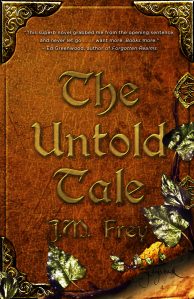
The Untold Tale (J.M. Frey)
$5.99 Select options This product has multiple variants. The options may be chosen on the product page -

Arrivals (J.M. Frey)
$1.99 Select options This product has multiple variants. The options may be chosen on the product page -
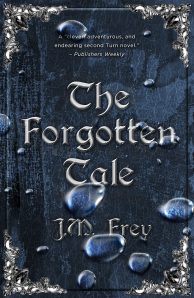
The Forgotten Tale (J.M. Frey)
$5.99 Select options This product has multiple variants. The options may be chosen on the product page


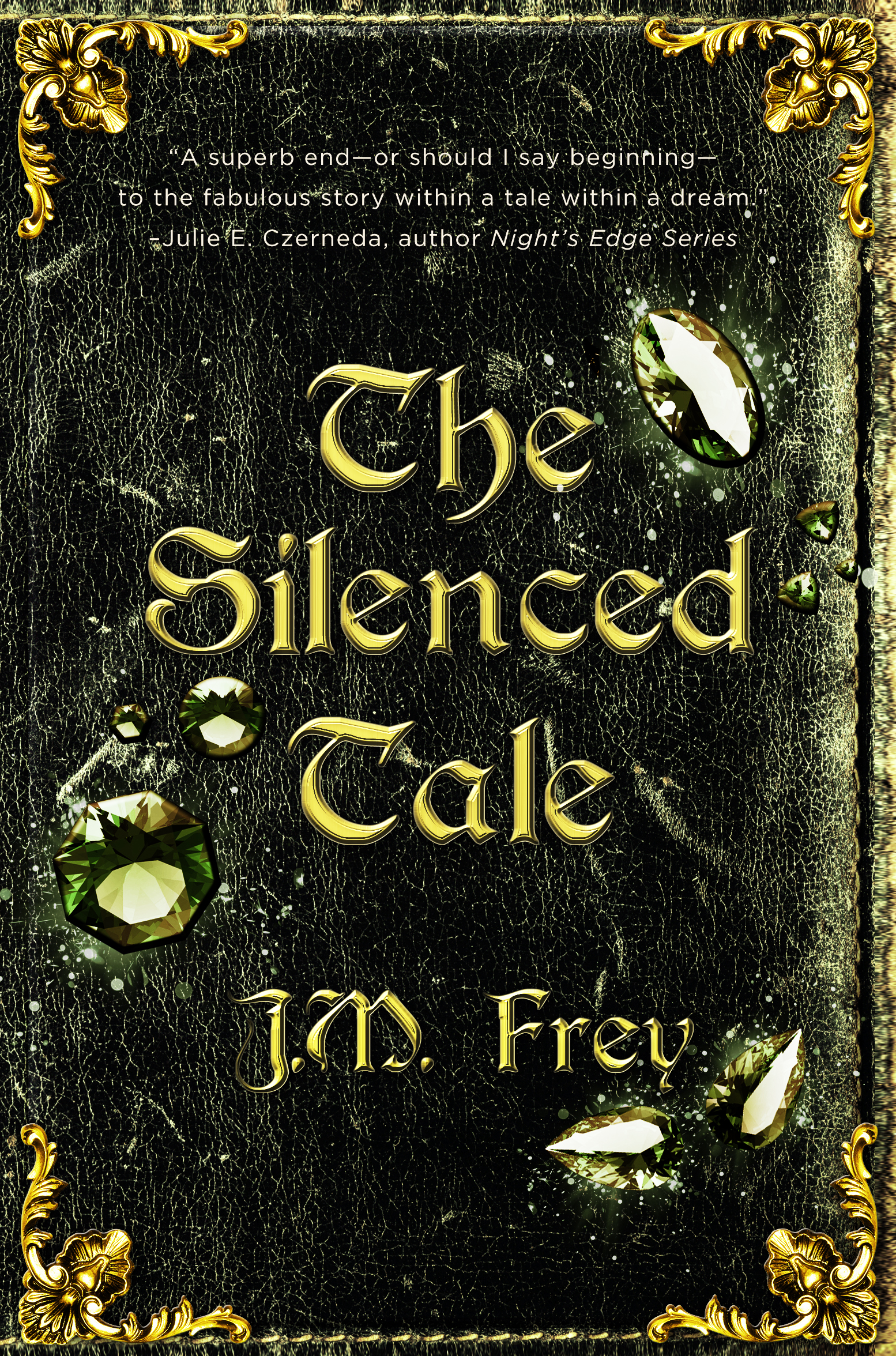
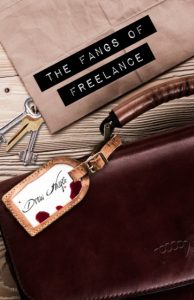
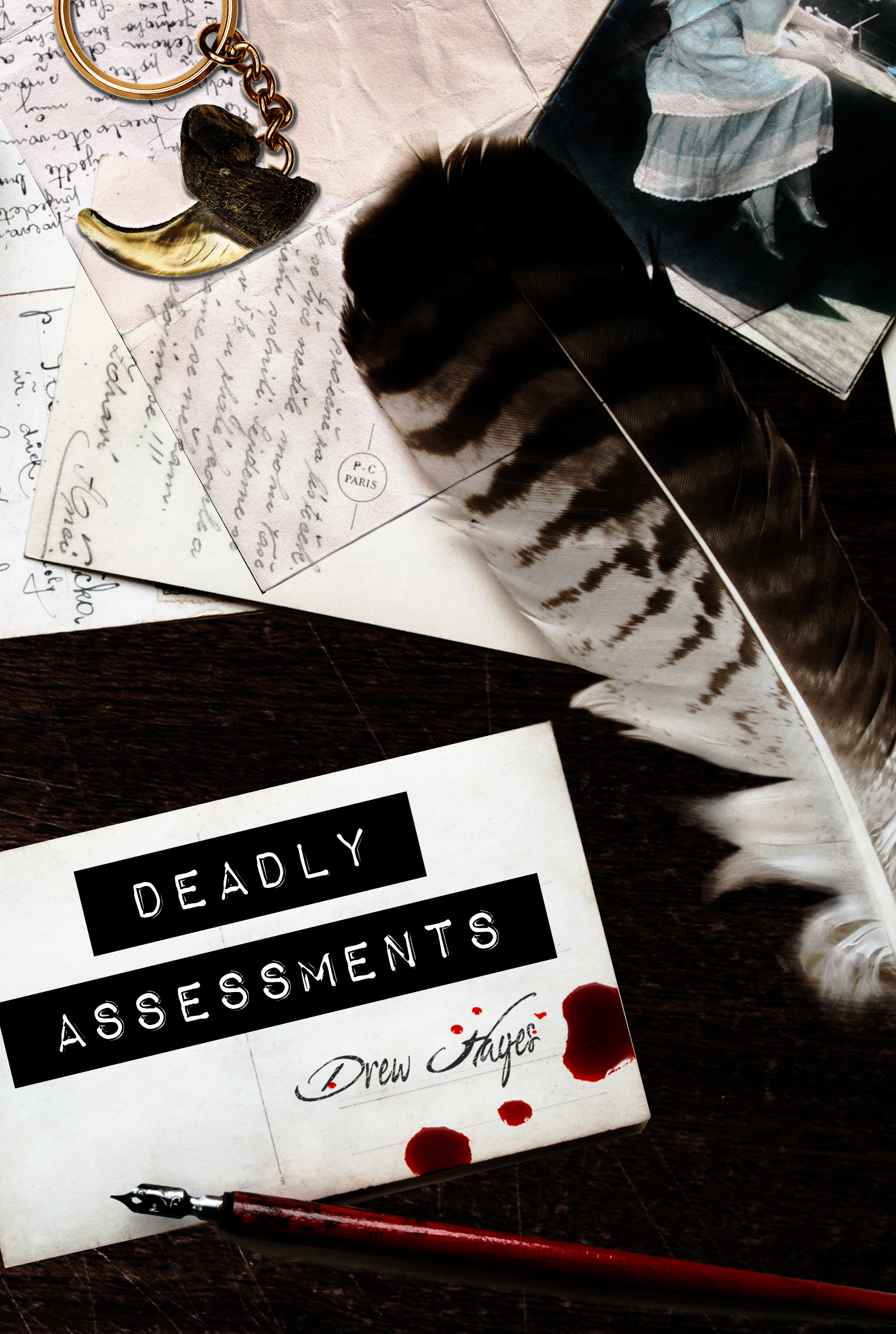
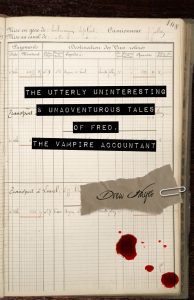

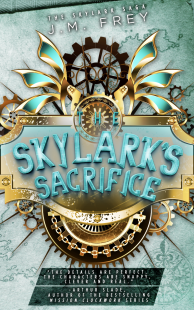
Reviews
There are no reviews yet.